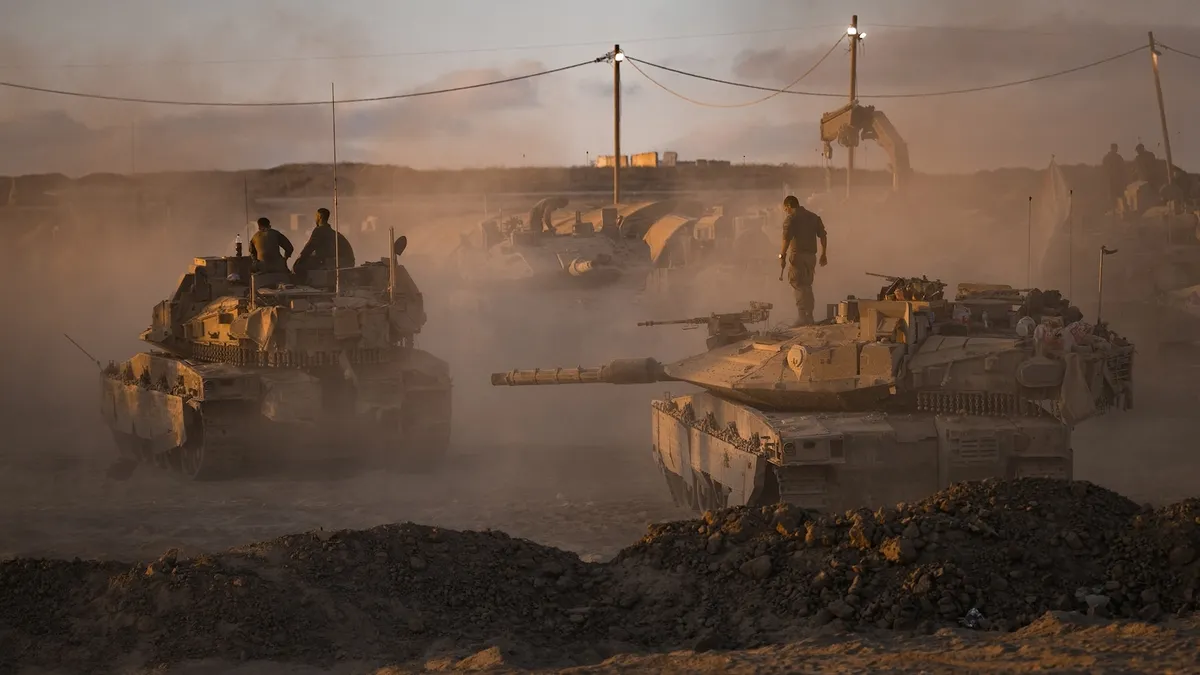
Israel has initiated the initial phases of a military operation targeting Gaza City as of Wednesday, preparing to mobilize between 50,000 to 60,000 reservists for the occupation of the city. This information was confirmed by Israel Defense Forces spokesman Eddie Defrin and other military officials. "We have begun the preliminary operations and the first stages of the attack on Gaza City," Defrin stated on Wednesday. Currently, Israeli forces are maintaining control of the outskirts of Gaza City.
On the same day, Israeli Defense Minister Israel Katz approved a military strategy known as Gideon's Chariots II, which outlines the plan to invade and occupy Gaza City. The mobilization of reservists is expected to commence immediately, according to military officials.
In the past 24 hours, at least 58 Palestinians have reportedly lost their lives due to Israeli airstrikes in Gaza, as reported by the Hamas-run Gaza Health Ministry. This surge in violence comes on the heels of Hamas’s acceptance of a ceasefire proposal from Qatar and Egypt earlier this week. This proposal is believed to be based on the framework initially suggested by the U.S. in June, although Israel has not publicly responded to Hamas’ agreement.
White House press secretary Karoline Leavitt noted that Hamas's decision to accept the ceasefire proposal may be linked to a recent statement made by President Donald Trump on social media, asserting that the remaining hostages would only be released once Hamas is defeated. "I don't think it's a coincidence that Hamas accepted this proposal after the president of the United States posted a very strong statement about this conflict," Leavitt remarked, referring to Trump's post on Truth Social.
Despite the escalating conflict, ABC News has yet to verify the specific details of the ceasefire proposal or the terms agreed upon by Hamas. Earlier this month, Israel's security cabinet approved a plan proposed by Prime Minister Benjamin Netanyahu for the military's occupation of Gaza City, which has drawn international condemnation due to the worsening humanitarian conditions in the Gaza Strip.
The United Nations High Commissioner for Human Rights, Volker Turk, urged an immediate halt to Israel's planned military offensive in Gaza City, warning that continued escalation could lead to massive forced displacements. "This further escalation will result in more killing, more unbearable suffering, and senseless destruction," Turk cautioned.
Concerns about humanitarian crises have intensified, with 115 organizations recently describing the severe food shortages in Gaza as equivalent to mass starvation, exacerbated by the Israeli government's blockade. Prime Minister Netanyahu has attributed these shortages to Hamas, claiming that if there were a starvation policy, "no one in Gaza would have survived after two years of war." He further accused Hamas of looting aid trucks intended for Palestinian civilians, a claim that Hamas has denied.
In recent developments, the IDF has reported a critical shortage of soldiers, estimated between 10,000 to 12,000, which has prompted an appeal to Jewish communities abroad. A senior IDF official stated that the lack of recruitment from the Haredi community has led the IDF to explore all avenues for replenishing its ranks.
The military intends to reach out to the largest Jewish communities in the Diaspora, particularly in the United States and France, to encourage young Jews of military age to come to Israel and serve in the army for several years. According to studies conducted by the IDF’s Manpower Division, the recruitment potential among those aged 18 to 25 in these communities exceeds 10,000 annually. The IDF aims to increase recruitment by approximately 600 to 700 additional soldiers each year from Jewish communities abroad.